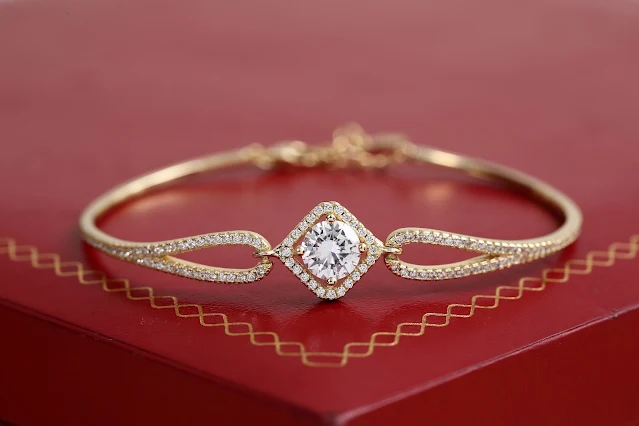In a world where jewelry holds sentimental and monetary value, proper care and maintenance are essential to preserve its lustrous beauty. Gold and diamonds, being some of the most sought-after and cherished gemstones, deserve extra attention. Commercial jewelry cleaners are available, but why not consider a DIY approach? Homemade jewelry cleaners can effectively bring back the sparkle to your precious pieces without the worry of harsh chemicals. In this comprehensive guide, we'll delve into the world of homemade jewelry cleaners specifically tailored for gold and diamonds, providing you with the knowledge to make your pieces shine like new.
Homemade Jewelry Cleaner: Gold and Diamonds’ Best Friend
The Art of Jewelry Maintenance
Before we dive into crafting our homemade cleaner, it's crucial to understand the significance of regular jewelry maintenance. Over time, gold and diamonds can accumulate oils, lotions, and dirt that dull their brilliance. Routine cleaning not only maintains their aesthetic appeal but also prevents potential damage. With homemade jewelry cleaners, you can ensure your pieces remain dazzling without the risk of abrasion or discoloration.
The Science Behind Homemade Jewelry Cleaners
Creating a homemade jewelry cleaner involves combining common household ingredients to concoct a powerful yet gentle cleaning solution. The science behind these cleaners lies in their ability to break down oils and grime that adhere to the jewelry's surface. The combination of these simple ingredients forms a cleansing solution that, when used correctly, can rejuvenate your gold and diamond jewelry.
Crafting the Perfect Homemade Jewelry Cleaner
Ingredients You'll Need:
1. Warm Water: Warm water acts as the base solvent, facilitating the removal of dirt and oils.
2. Mild Dish Soap: A few drops of mild dish soap will help cut through grease and grime without harming the jewelry.
3. Ammonia: Ammonia is an effective ingredient for diamonds, aiding in the dissolution of stubborn residues.
4. Baking Soda: Baking soda's gentle abrasive nature assists in removing tarnish from gold pieces.
5. Soft Bristled Toothbrush: A soft toothbrush helps clean intricate details and settings.
Recipe:
1. Prepare a bowl, filling it with comfortably warm water.
2. Incorporate several gentle droplets of mild dish soap alongside a modest measure of ammonia. (Approximately 1 part ammonia to 6 parts water)
3. For gold jewelry, sprinkle a pinch of baking soda into the solution.
4. Gently mix the solution.
5. Immerse your precious jewelry in the solution and allow it to steep for a span of 15 to 20 minutes.
6. Employ a tender touch to delicately cleanse your jewelry using a soft toothbrush, eliminating any particles of dirt or impurities.
7. Rinse the jewelry under lukewarm water.
8. Pat dry with a lint-free cloth.
Precautions and Considerations
While homemade jewelry cleaners are generally safe and effective, there are a few precautions and considerations to keep in mind:
1. Diamonds Only: Ammonia should only be used for diamonds. Avoid using it on other gemstones, as it can cause damage.
2. Test Before Use: Before immersing your jewelry completely, perform a patch test on a small, inconspicuous area to ensure no adverse reactions.
3. Delicate Pieces: For delicate or antique pieces, consult a professional jeweler before attempting any cleaning.
4. Frequency: Limit cleaning to once a month to prevent excessive wear on your jewelry.
Storing and Preventative Care
Proper storage and care can prolong the beauty of your gold and diamond jewelry:
1. Separate Storage: Store each piece in a soft pouch or individual compartment to prevent scratching and tangling.
2. Avoid Contact: Remove jewelry before applying lotions, perfumes, or engaging in activities that might expose them to chemicals.
3. Regular Inspection: Periodically examine your jewelry for loose stones or damaged settings, and address any issues promptly.
4. Professional Cleaning: Consider professional cleaning and inspection once a year to address deep-seated dirt and ensure settings are secure.
DIY Jewelry Cleaning Myths Debunked
While homemade jewelry cleaners can work wonders, it's important to separate fact from fiction. Let's debunk some common myths:
1. Toothpaste and Baking Soda Mix: This mixture can be abrasive and might damage your jewelry over time.
2. Boiling Water: Boiling water can fracture gemstones, especially if there are internal inclusions.
3. Vinegar Soak: Vinegar's acidic nature can harm certain gemstones and metals.
Homemade Jewelry Cleaner: Frequently Asked Questions (FAQs)
Q1: Can I use the homemade cleaner on silver jewelry?
Yes, the cleaner can be used on silver, but skip the ammonia. Instead, use a small amount of white vinegar.
Q2: How can I clean intricate filigree designs?
Use a soft-bristle toothbrush or a makeup brush to gently clean intricate patterns.
Q3: Is it possible to employ a hairdryer for expediting the drying procedure?
It's more advisable to allow your jewelry to naturally dry or make use of a cloth devoid of lint to gently absorb the moisture. Heat from a hairdryer can cause damage.
Conclusion
Caring for your gold and diamond jewelry doesn't have to be an intimidating task. With the right homemade jewelry cleaner and a little know-how, you can ensure your pieces continue to shine for generations to come. Remember, the key lies in regular maintenance, gentle cleaning solutions, and the love you put into preserving these timeless treasures. So, gather your ingredients, follow the steps, and let your homemade jewelry cleaner restore the brilliance of your cherished pieces—naturally, safely, and beautifully.
